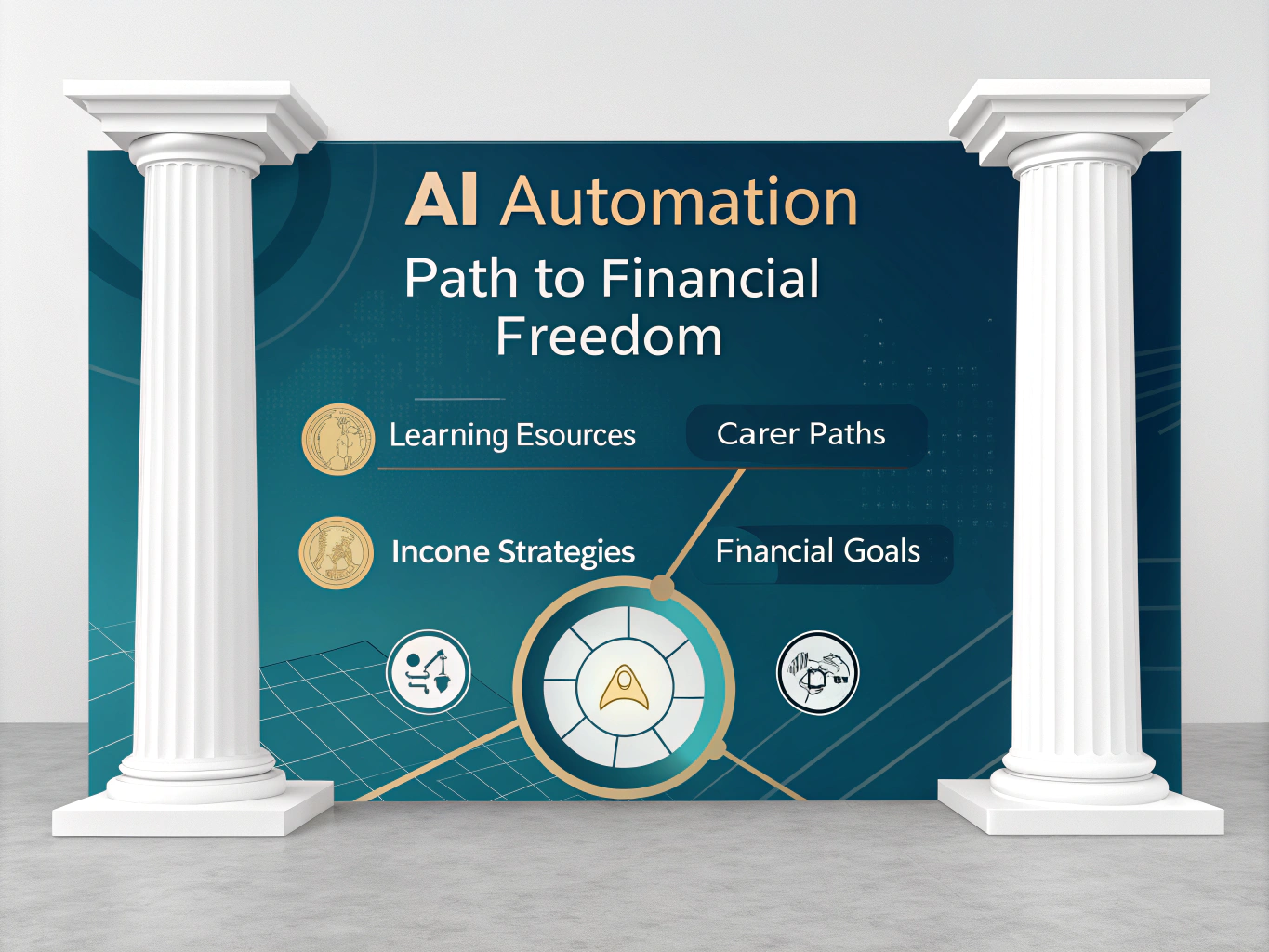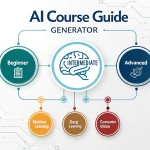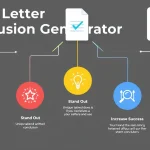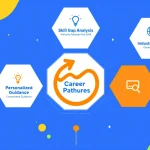AI Automation and Financial Freedom Guide Generator
Is this tool helpful?
How to Use the AI Automation and Financial Freedom Guide Generator Effectively
To get the most from this personalized guide generator, follow these simple steps:
- AI Automation Resources (Optional): Enter specific learning resources that interest you. For example, you could input “Udacity AI Nanodegree, ‘Machine Learning Yearning’ by Andrew Ng” or “MIT OpenCourseWare AI lectures, Fast.ai courses.”
- Financial Freedom Strategies (Optional): Describe your approach to building wealth. Sample inputs include “Building AI-enabled niche blogs generating passive revenue” or “Taking freelance AI consulting projects while investing in cryptocurrencies.”
- Industry Focus (Optional): Specify an industry where you want AI automation examples. Try inputs like “Agriculture technology” or “Real estate management.”
- Career Background (Optional): Share your professional experience. Examples include “Electrical engineer transitioning to AI” or “Entrepreneur with 3 years in e-commerce.”
- Generate Guide: Click the button to receive your tailored AI automation and financial freedom plan.
Once your personalized guide appears, you can easily copy the content for future use or sharing.
What is the AI Automation and Financial Freedom Guide Generator?
This tool creates a customized plan that merges artificial intelligence (AI) automation knowledge with smart financial strategies to help you achieve financial independence. By entering your learning preferences, financial goals, industry interests, and current career background, the generator crafts a focused roadmap tailored to your needs.
Understanding AI Automation
AI automation uses technologies like machine learning, natural language processing, and robotics to automate tasks, improve efficiency, and unlock new business opportunities across industries.
Defining Financial Freedom
Financial freedom means having enough income and resources to live comfortably without relying on traditional employment. It involves creating multiple income streams and building wealth through smart investments and leveraging technology like AI.
Connecting AI Automation to Financial Freedom
This guide generator helps you understand how AI automation skills open pathways to financial independence. By learning relevant AI tools and applying them in your chosen field, you can unlock new career opportunities and income sources aligned with your goals.
Practical Uses of the AI Automation and Financial Freedom Guide Generator
- Tailored Learning Paths: Receive specific AI courses, books, and communities suited to your interests, helping you learn efficiently without getting overwhelmed.
- Customized Wealth-Building Strategies: Align AI skill development with financial approaches that suit your style, whether freelancing, building passive income streams, or career advancement.
- Industry-Specific Insights: See AI automation applications relevant to your sector, such as healthcare, finance, or renewable energy.
- Career Enhancement: Get advice on integrating AI skills into your current role or transitioning to specialized AI careers.
- Comprehensive Resource Compilation: Access a curated list of up-to-date AI learning materials, saving you time and ensuring quality.
- Real-World Case Studies: Explore examples of AI automation creating value across different industries.
- Networking Recommendations: Discover communities and professional groups that support your AI learning and career growth.
- Financial Planning Guidance: Learn how to combine AI technology with sound financial strategies to accelerate wealth building.
Examples of How to Apply Your Guide
1. AI Automation in Retail Analytics
- Overview of AI methods in customer behavior analysis and inventory management.
- Recommended courses in data science, Python programming for retail, and predictive analytics.
- Case studies of companies using AI for personalized marketing and supply chain optimization.
- Steps to build a retail sales forecasting model.
- Strategies for freelancing as a retail AI analyst or creating AI tools for small businesses.
2. AI Entrepreneurship in Green Technology
- Insights into AI applications for energy management and environmental monitoring.
- Curated list of online trainings combining AI skills with sustainability knowledge.
- Analysis of successful green tech startups and their business models.
- A plan for developing AI prototypes tailored to renewable energy solutions.
- Funding resources and accelerators specializing in green technology ventures.
- Financial strategies to scale and monetize your AI-powered green solutions.
3. Transitioning to AI from a Marketing Background
- Comparison of marketing roles with emerging AI-focused marketing positions.
- Step-by-step learning roadmap covering AI-driven customer segmentation and sentiment analysis.
- Suggestions for AI projects to build a professional portfolio.
- Tips on networking within the AI and marketing communities.
- Guidance on applying for AI marketing roles and preparing for interviews.
- Planning long-term advancement towards leadership in AI-enabled marketing strategies.
Frequently Asked Questions (FAQ)
Q1: How long does it take to gain AI automation skills?
The duration depends on your background and goals. Basic proficiency in machine learning can take 3-6 months of dedicated study, while advanced expertise may take 1-2 years. This guide helps you organize your learning efficiently.
Q2: Do I need advanced math skills for AI automation?
While linear algebra, calculus, and statistics underpin advanced AI concepts, you can start applying AI techniques with a basic math foundation. The guide includes resources to build math skills alongside AI learning.
Q3: Can AI automation skills alone ensure financial freedom?
AI skills increase earning potential but financial freedom requires combining these skills with smart investing and building multiple income streams. The guide emphasizes a balanced, strategic approach.
Q4: What entry-level AI jobs can I pursue?
Roles like Junior Data Scientist, Machine Learning Engineer, and AI Research Assistant are common entry points. The guide provides advice on preparing and applying for these positions tailored to your background.
Q5: How do I keep up with fast changes in AI?
Staying updated involves continuous learning, following AI leaders, and engaging with communities. The guide recommends the best resources, conferences, and forums to keep your skills current and relevant.
Integrating AI Skills with Financial Freedom Goals
Use this tool to craft a clear path that ties your AI automation learning with specific financial freedom strategies. Whether you want to create passive income through AI-driven products, advance your career in AI roles, or launch an AI-based startup, the generator designs a tailored plan aligning technology skills with wealth-building objectives.
By focusing on your interests and background, the guide saves you time and effort, helping you build relevant expertise that directly supports your financial goals.
Important Disclaimer
The calculations, results, and content provided by our tools are not guaranteed to be accurate, complete, or reliable. Users are responsible for verifying and interpreting the results. Our content and tools may contain errors, biases, or inconsistencies. Do not enter personal data, sensitive information, or personally identifiable information in our web forms or tools. Such data entry violates our terms of service and may result in unauthorized disclosure to third parties. We reserve the right to save inputs and outputs from our tools for the purposes of error debugging, bias identification, and performance improvement. External companies providing AI models used in our tools may also save and process data in accordance with their own policies. By using our tools, you consent to this data collection and processing. We reserve the right to limit the usage of our tools based on current usability factors.







